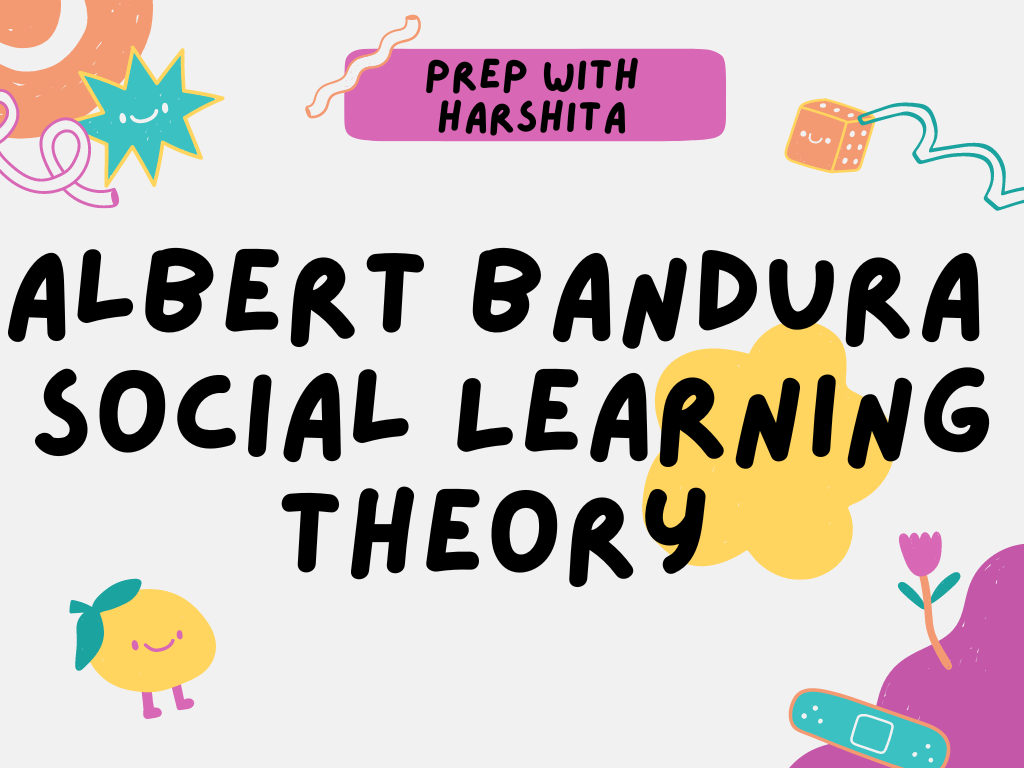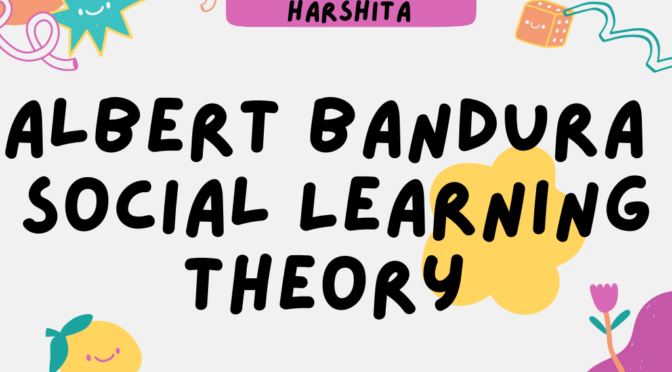Albert Bandura social learning theory is a psychological theory that emphasizes the importance of observational learning, modeling, and imitation in shaping behavior. According to this theory, people learn through observing the behavior of others, and they can use this information to guide their actions.
Bandura’s theory proposes that learning can occur through three key processes: observational learning, reinforcement, and cognitive processes.
- Observational learning refers to learning that occurs by observing the behavior of others. Bandura suggested that people can learn new behaviors and skills by watching others and imitating their actions. This process is particularly important in social contexts, where individuals can learn appropriate behaviors and social norms by observing and imitating others.
- Reinforcement refers to the consequences that follow a behavior, which can either increase or decrease the likelihood of that behavior occurring again in the future. Bandura suggested that reinforcement is an important part of the learning process, and that people are more likely to repeat behaviors that are reinforced, while behaviors that are punished or ignored are less likely to be repeated.
- Cognitive processes refer to the mental processes that are involved in learning, such as attention, memory, and motivation. Bandura suggested that people’s thoughts, beliefs, and expectations can influence their behavior, and that these cognitive processes can be shaped by the environment.
The principles of Albert Bandura’s social learning theory can be summarized as follows:
- Learning occurs through observation and imitation: According to Bandura, people can learn new behaviors and skills by observing the behavior of others and imitating them.
- Reinforcement is an important part of the learning process: People are more likely to repeat behaviors that are reinforced, while behaviors that are punished or ignored are less likely to be repeated.
- Cognitive processes are involved in learning: People’s thoughts, beliefs, and expectations can influence their behavior, and these cognitive processes can be shaped by the environment.
- Behavior is influenced by social context: Social factors such as social norms, cultural values, and peer pressure can all play a role in shaping behavior.
- Modeling and imitation are important in behavior change: Observing others who are successful in making behavior changes can be a powerful motivator for individuals to make similar changes themselves.
- Self-efficacy is a key component of behavior change: Bandura suggested that people’s beliefs about their own ability to successfully perform a behavior are a key determinant of whether they will actually engage in that behavior.
Overall, Bandura’s social learning theory emphasizes the importance of social context in shaping behavior, and highlights the role of observation, modeling, and reinforcement in the learning process. This theory has been applied in a wide range of areas, including education, psychology, and social policy, and has helped to shed light on how people learn new behaviors and skills, and how these behaviors can be modified and changed over time.
Also Read : Wechsler Intelligence Test

Also Visit : Prep with Harshita


This is more helpful info than I have read anywhere else. Do you want to share your sourceexperience with the rest of us?
Crypto Casino Plinko ist durch das Stake Plinko Casino Game bekannt geworden. Stake war einer der Game-Hersteller, die Plinko online bereitgestellt haben. Heute gibt es mehrere Plinko Spiele unterschiedlicher Hersteller. Wir wollen Ihnen nachfolgend daher einige weitere sehr gute Plinko Spiele kurz und knapp vorstellen. Es gibt mehrere renommierte Provider, die Plinko Versionen für Online Casinos zur Verfügung stellen. Das sind die beliebtesten Plinko Varianten: Freispiele ohne Einzahlung und Freispiele mit Einzahlung haben jeweils ihre eigenen Vorzüge. Free Spins ohne Einzahlung eignen sich hervorragend, um ein neues Online Casino zu erkunden oder eine Plattform ohne finanzielles Risiko auszutesten. Wenn Sie andererseits ein bevorzugtes Online Casino haben, bei dem Sie regelmäßig spielen, können die Free Spins, die mit regelmäßigen Einzahlungen verbunden sind, besonders vorteilhaft sein.
https://stratos-ad.com/forums/index.php?action=profile;u=64341
Wie funktioniert Plinko? Plinko ist ein Glücksspiel, das aus der TV-Sendung “Der Preis ist heiß” bekannt ist. Eine Plinko Scheibe oder ein Plinko Ball wird oben in eine pyramidenförmige Anordnung von Pins geworfen. In jeder Reihe kann der Ball nach links oder rechts fallen, um schließlich am unteren Ende in einem von mehreren Fächern zu landen. Da die Positionen am Ende des Spielfeldes mit unterschiedlichen Wahrscheinlichkeiten verbunden sind, ergeben sich bei den Plinko App Erfahrungen verschiedene Gewinnpotentiale. Ein weiterer bedeutender Aspekt der Nutzung der plinko app sind die Sicherheitsvorkehrungen, die zum Schutz der Nutzer implementiert wurden. Apps, die auf Glücksspiel basieren, müssen strengen Vorschriften folgen, die die Sicherheit und den fairen Spielbetrieb gewährleisten. Diese Vorschriften variieren je nach Region, aber die meisten Apps arbeiten mit bekannten Sicherheitszertifikaten.